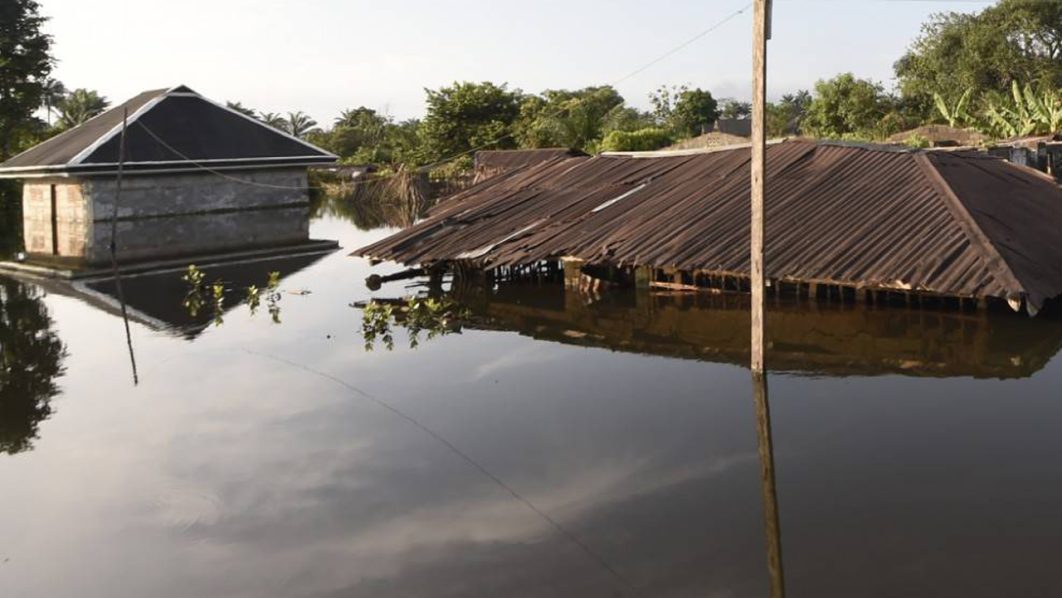
For those who would customarily ignore the threat of floods or oblivious of the dangers it portends, the 2022 experiences have opened the awareness that unless unusual measures are deployed to arrest the situation, this year’s incidents could be a child’s play.
Excuses and buck passing held sway. Many citizens remained hapless, unable to fathom why floods ravaged communities where lives have been lost in the magnitude seen from September, killing no fewer than 600 people, aside from communities that were sacked alongside economic and environmental misfortunes across the country.
This year’s floodings had, in its trails, most catastrophic effects, bringing unimaginable economic hardship to households in the affected areas where more than 1.3 million people were reportedly displaced in different communities nationwide.
Its crushing effects were more felt in states like Adamawa, Taraba, Benue, Niger, Nasarawa, Kebbi and Kogi in the North; while Edo, Delta, Rivers, Cross River, Anambra and Bayelsa largely bore the effect in the Southern part of the country.
Sad enough, the Nigerian Meteorological Agency, a government agency saddled among other mandates, with the responsibility of Weather Forecasting Services, Applied Meteorological Services and Research and Training had issued several alerts on the intensity of the rains and possible negative impacts.
Floods are not new to us Rivers Niger and Benue did overflow their banks between July and October 2012 and within a space of three months, caused serious economic and health problems to those residing along their banks.
Similarly, in October 2015, River Benue overflowed its banks, leaving over 300 houses and huts submerged with many families rendered homeless in the Makurdi area of Benue State, among others.
The question to always ask is if there were warnings of any sort before such disasters occur in the first instance. Yes, the Nigerian Meteorological Agency, NiMet has not left the nation in the dark on what to expect each raining season.
While appearing on Channels Television’s Sunrise, Director-General of the Nigeria Hydrological Services, Clement Nze disclosed that the Minister of Water Resources, Engr. Suleiman Adamu had in a letter he personally authored earlier in the year, informed state governors of the impending devastating floods of 2022, arising from NiMet’s report of February 15, 2022.
“The Minister of Water Resources that gave the unveiling of the prediction, the annual flood outlook, issued warnings letters to each state government in Nigeria and relevant ministries like agriculture, environment and aviation, informing them the specific locations in their states they should watch out for during the rainy season,” Nze disclosed.
Again, ahead of the 2022 flooding, NiMet in August alerted that there would be heavy rainfall and possible flooding in six states in an impact-based weather forecast for August 30 to September 1.
What are the policies and programmes of sub-national governments? Records indicate that NiMet as far back as May 2013 urged officials, especially state governments to plan ahead and avoid disasters, especially in flood-prone riverine communities. Ifeanyi Nnodu, then director of Weather Forecasting Services emphasized that while the agency cannot enforce its advice, state governments should give serious consideration to its advocacy.
“Our duty is to give the prediction, then the other agencies of government who have enforcement powers should act.
“Where the people will have to be moved by force, they move them by force. If there is going to be flood, with the level of awareness, definitely the loss of lives and property will be reduced. You cannot stop natural disasters from happening, just like you cannot stop a bird from flying over your head but you can prevent the bird from perching on your head,” Nnodu counselled.
But are these disasters supposed to occur in the magnitude of their occurrences? Amidst the controversy of states heaping entirely the flood response on the laps of the Federal Government; questions have arisen of the responsibilities of sub-nationals in flood control management in view of their share from the ecological fund.
Has the Federal Government reneged on its promise to build a dam in Dasin Village of Fufore Local Government Area of Adamawa State to control water from Lagdo Dam from neighbouring Cameroun? Nigeria was expected to build a similar dam along the River Benue for the purpose of curtailing the effects of the downstream water released from upstream by the Lagdo Dam on nearby Nigeria’s North-East states of Borno, Adamawa and Taraba.
While appearing before the Senate Committee on Water Resources on October 19, 2022 to defend the ministry’s 2023 budget, Minister of Water Resources, Suleiman Adamu, distanced the Nigerian floodings from water release from the Camerounian Dam.
A Edo State based public health physician and retired Director/Chief Executive of Edo State Hospitals Management Agency, Dr. Peter Eguakun, thinks that the Federal Government can do better to control incessant flooding and mitigate damage to lives and property.
His position: “The most cost-effective action, backed by a strong political will, is siting of a solid bumper dam in Nigeria down the course of the Lagdo Dam to cushion the effects of the release of water from the Lagdo Dam.”
While Eguakun was right in his submission, it is comparably important to take cue from the minister. If the water fingered for the horrible flood experience this year had no direct linkage with the Camerounian source, then the solution must be homegrown and all-inclusive to have intentional inputs from the government at the centre and absolute commitment from states governments!
With growing demand for the Federal Government’s intervention during this year’s flood disasters, Senior Special Assistant to the President on Media and Publicity, Mallam Garba Shehu, faulted the argument that the Federal Government has not been doing enough. “Calls for the Federal Government to respond to all outbreaks of natural disaster do not just display an understanding of Nigerian law,” Shehu argued.
He specifically tasked states governments to give account of how they spent amounts in excess of one trillion naira which accrued to them in three years from the Ecological Fund to tackle floods and other ecological problems in their respective states.
Records indicate that the 36 states and FCT received an excess of N1 trillion, representing 2.2 per cent of the total accruals for 2018, 2019 and 2023 for ecological and disaster management.
Shehu in addition, said that each of the three tiers, the local government, the state government and the Federal Government has a sizable budget at its disposal, allocated monthly precisely for dealing with these state-level natural emergencies.
“If those sums of money are, for whatever reason, no longer available, the affected states and local councils must immediately contact the relevant authorities to explain what has happened to those funds,” said Shehu.
Established in 1981 through the Federation Account Act 1981, on the recommendation of the Okigbo Commission, the Ecological Fund is an intervention fund by the Federal Government to address the multifarious ecological challenges in various communities across the country and it has as parts of its other responsibilities aside flood control, soil erosion; drought, desertification and coastal zone management and also pollution control.
Aside from the casualty figures, the sacked communities and people that were rendered homeless and displaced, many farms were washed away with losses suffered by individual farmers and big names in agricultural productions. About N100 billion was estimated by the Director General of the Federal Emergency Road Management Authority, FERMA, to rehabilitate roads affected by floods nationwide for this year.
It is then important for sub-national governments to reconsider their Ecological Fund spending strategy and deployment to necessary and critical sectors in a manner to significantly avoid, reduce and mitigate the impact of unavoidable flooding should a repeat of 2022 experience presents itself in 2023, after all, the climate change menace is still here with us.
To avoid similar emergencies as witnessed this year, state governments must stop seeing the Ecological Fund as an extension of free fund that could be diverted to other uses; deliberately prepare to forestall recurrence by embracing audacious town planning to resettling disaster-prone communities; heed and act on early warnings and offer needed support to save life, property and the environment will the devastations.
In the same vein, the Federal Government must take advantage of this breathing phase to dredge the Benue and Niger Rivers in line with experts’ demands for the rivers to gain more depth that can soak the volume of municipal and cross border waters which have destroyed livelihoods and brought pain and agony to many homes.






